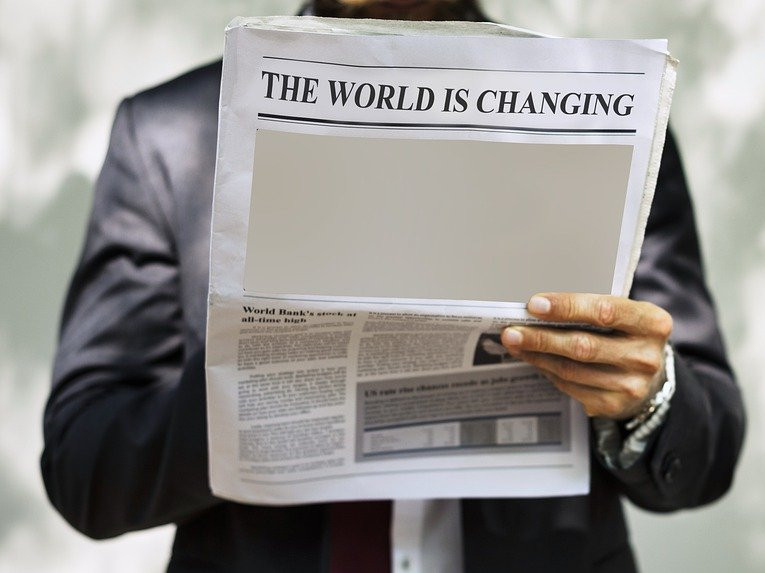
Asia | China | COVID | Politics & Geopolitics | US

Asia | China | COVID | Politics & Geopolitics | US
The war against the COVID-19 pandemic appears to be in its final stretch with the news of two Western vaccines, but investors seem stuck thinking small. Many are focusing on tourism returning or restaurants re-opening. Meanwhile, others are re-hashing debates from the 2008 financial crisis on whether excessive government and central bank actions will lead to equity market bubbles and inflation. What they are all ignoring, however, is that the world is experiencing the largest shock to society since the Second World War.
This article is only available to Macro Hive subscribers. Sign-up to receive world-class macro analysis with a daily curated newsletter, podcast, original content from award-winning researchers, cross market strategy, equity insights, trade ideas, crypto flow frameworks, academic paper summaries, explanation and analysis of market-moving events, community investor chat room, and more.
The war against the COVID-19 pandemic appears to be in its final stretch with the news of two Western vaccines, but investors seem stuck thinking small. Many are focusing on tourism returning or restaurants re-opening. Meanwhile, others are re-hashing debates from the 2008 financial crisis on whether excessive government and central bank actions will lead to equity market bubbles and inflation. What they are all ignoring, however, is that the world is experiencing the largest shock to society since the Second World War.
This myopia is not unusual. Investors fretted about the dot-com collapse in 2000, yet it was the normalization of trade relations between the US and China (and later WTO entry) which set the tone for the next decade. Even further back, in 1919 at the Treaty of Versailles, the Allies punished Germany with heavy reparations after the First World War. But it was John Maynard Keynes in his famous “The Economic Consequences of the Peace”, who saw that this would eventually lead to economic stagnation, hyperinflation and political turmoil.
The closest parallel to today, however, might be the Second World War. At the time, the focus was the jockeying of new and old empires. Yet one of the war’s most significant consequences was women’s entry into the workforce, which only accelerated thereafter.
Today, our myopia has investors too focused on which and when closed businesses will re-open. Instead, focus should be on how economies will change structurally having experienced continued lockdowns. In essence, we have undergone a long experiment in running the economy without social interaction. And perhaps the biggest surprise has been how well remote working has done. This suggests large swathes of the economy will continue to use some version of remote working even when the pandemic is over.
And with remote working on the rise, the importance of location for work will decline. Employers will have access to a larger labour force, which could cap inflation and wage growth. And workers could get remote access to jobs that their location previously prevented. This could see levelling of wages across the labour market.
Meanwhile, other workers in high employment locations could move to more attractive locations in terms of weather and cost of living. Already, we are seeing more demand for houses than apartments in the US (Chart 1). We are also seeing similar patterns elsewhere. For example, in the UK house prices are rising faster in the South West than in London. The challenge for governments will be to provide the infrastructure to enable this shift – notably, internet connection. Therefore, the mass but uneven 5G rollout could determine the winning countries from the losing ones (Chart 2).
The other side of this remote working trend is how industries previously thought to require physical interaction will be upended – think education and healthcare. We are likely only seeing the tip of the iceberg in terms of how technology could disrupt these sectors.
Finally, there are geo-political consequences of COVID-19. On the positive side, the race for a vaccine has prompted massive international co-operation and knowledge sharing. This could set the template for other international challenges, whether related to diseases or climate change. On the negative side, we could see vaccine distribution become the latest front in the US-China clash. The US and other western countries appear to be monopolizing vaccines for their own populations, while China has a strategy for distributing to developing countries.
The bottom line is that we need to look beyond the near-term and appreciate that the pandemic and associated lockdowns have likely resulted in the biggest global shock to global societies since the Second World War.
Spring sale - Prime Membership only £3 for 3 months! Get trade ideas and macro insights now
Your subscription has been successfully canceled.
Discount Applied - Your subscription has now updated with Coupon and from next payment Discount will be applied.